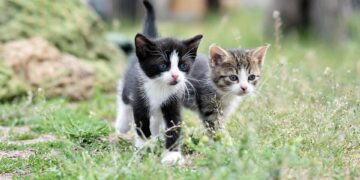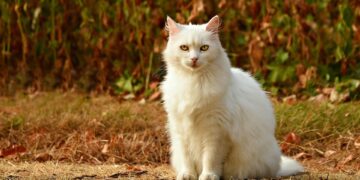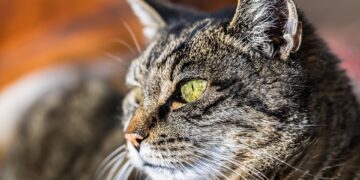Gentle on the Tummy: Nourishing Food for Senior Cats with Sensitive Stomachs
As our feline friends age, they may develop sensitive stomachs that require special care and attention when it comes to their diet. Just like humans, cats can experience digestive issues that can be uncomfortable and even painful. It’s important to provide them with the right kind of nourishment to support their overall health and well-being. In this article, we will explore the best food options for senior cats with sensitive stomachs, focusing on gentle and nourishing choices that can help alleviate digestive issues and promote a happy and healthy life for your furry companion.
Understanding Sensitive Stomachs in Senior Cats
As cats get older, their digestive systems may become more sensitive to certain foods and ingredients. This can lead to a variety of digestive issues such as vomiting, diarrhea, constipation, and gas. Common causes of sensitive stomachs in senior cats include food allergies, food intolerances, inflammatory bowel disease, and gastrointestinal infections. It’s important to consult with your veterinarian to rule out any underlying medical conditions that may be contributing to your cat’s digestive issues.
Choosing the Right Food for Senior Cats with Sensitive Stomachs
When selecting food for your senior cat with a sensitive stomach, it’s important to look for options that are gentle on the digestive system and easy to digest. Here are some key factors to consider when choosing the right food for your furry friend:
1. Limited Ingredients
Opt for cat food with a limited number of high-quality ingredients to minimize the risk of triggering food allergies or intolerances. Look for options that are free from artificial additives, fillers, and by-products.
2. Easily Digestible Proteins
Choose cat food that contains easily digestible proteins such as chicken, turkey, or fish. Avoid foods with high levels of fat, as this can be harder for cats with sensitive stomachs to digest.
3. Fiber Content
Include fiber in your cat’s diet to promote healthy digestion and alleviate constipation. Look for cat food with natural sources of fiber such as pumpkin, sweet potatoes, or brown rice.
4. Probiotics and Prebiotics
Probiotics and prebiotics can help support a healthy digestive system by promoting the growth of beneficial bacteria in the gut. Look for cat food that contains these ingredients to help maintain a healthy balance of gut flora.
Top Picks for Senior Cats with Sensitive Stomachs
There are a variety of cat food options available that are specifically formulated for senior cats with sensitive stomachs. Here are some top picks to consider for your furry friend:
1. Royal Canin Digest Sensitive Thin Slices in Gravy
This wet cat food is formulated to support digestive health in cats with sensitive stomachs. It contains easily digestible proteins and a blend of fibers to promote healthy digestion. Plus, it comes in a delicious gravy that cats love.
2. Hill’s Science Diet Adult Sensitive Stomach & Skin Cat Food
This dry cat food is specially formulated for cats with sensitive stomachs and skin issues. It contains prebiotic fibers to promote healthy digestion and omega-6 fatty acids to support a shiny coat and healthy skin.
3. Purina Pro Plan Focus Adult Sensitive Skin & Stomach Salmon & Rice Formula
This dry cat food is made with real salmon as the first ingredient and is rich in omega-3 fatty acids to promote a healthy coat and skin. It also contains easily digestible rice and oatmeal to support digestive health in cats with sensitive stomachs.
Tips for Feeding Senior Cats with Sensitive Stomachs
When feeding your senior cat with a sensitive stomach, it’s important to follow these tips to ensure they receive the nourishment they need while minimizing digestive issues:
1. Gradual Transition
When switching your cat to a new food, do so gradually over a period of 7-10 days to allow their digestive system to adjust. Start by mixing a small amount of the new food with their current food and gradually increase the amount of the new food each day.
2. Small, Frequent Meals
Instead of feeding your cat one or two large meals a day, consider offering smaller, more frequent meals to help prevent digestive upset. This can also help maintain stable blood sugar levels and prevent obesity in senior cats.
3. Provide Plenty of Water
Ensure your senior cat has access to fresh, clean water at all times to prevent dehydration and promote healthy digestion. Consider offering a water fountain to encourage your cat to drink more water throughout the day.
Conclusion
Feeding a senior cat with a sensitive stomach requires careful consideration and attention to their dietary needs. By choosing gentle and nourishing food options that are easy to digest and support digestive health, you can help alleviate digestive issues and promote a happy and healthy life for your furry companion. Consult with your veterinarian to determine the best food options for your senior cat with a sensitive stomach and follow these tips to ensure they receive the nourishment they need to thrive in their golden years.











































